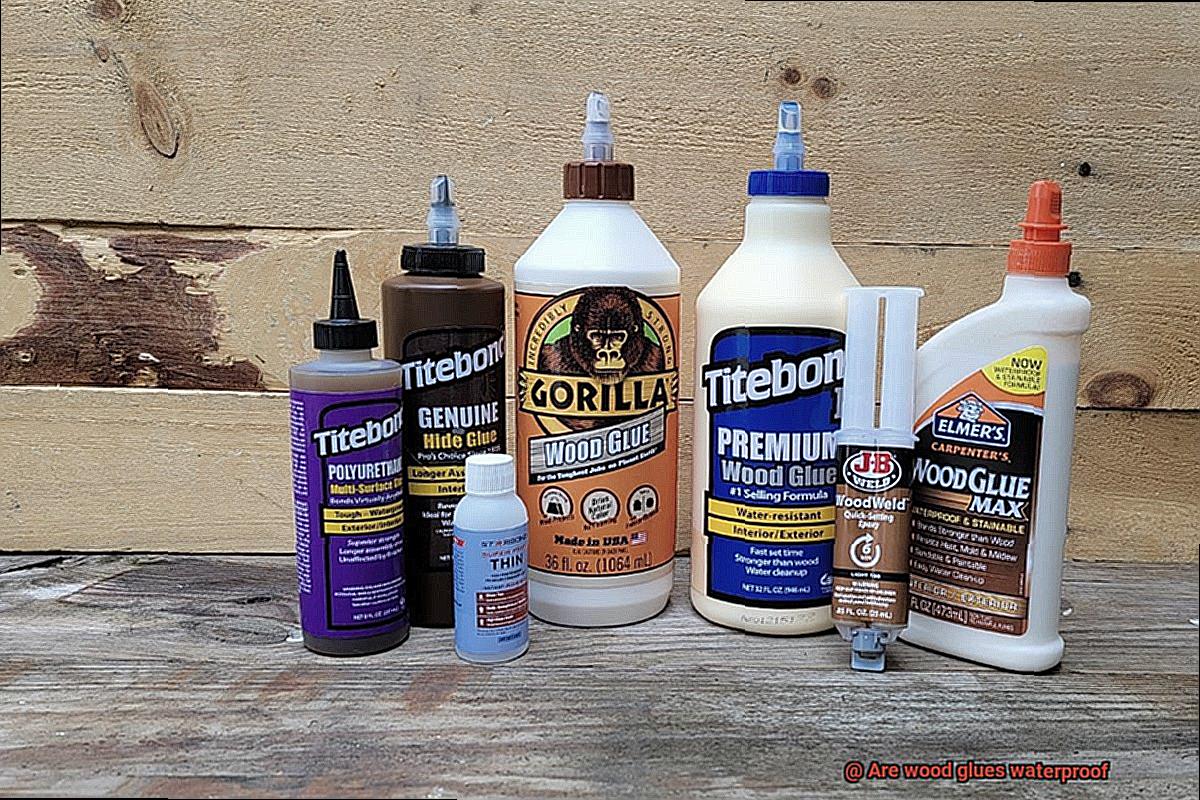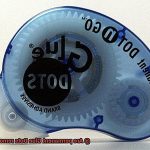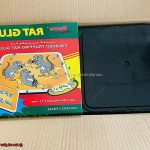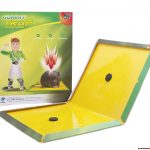Are you tired of spending hours on a DIY wood project, only to find out later that the glue couldn’t withstand water damage? It’s frustrating to see your hard work come undone. That’s why woodworking enthusiasts, carpenters, and DIY hobbyists alike have all asked the same question: Are wood glues waterproof?
The answer isn’t as straightforward as you might think. Some wood glues are indeed waterproof, while others may not be suitable for use in wet environments. But don’t worry, this blog post will dive deeper into the question of wood glue’s water resistance.
We’ll explore the different types of wood glue available and discuss their specific waterproofing properties. From PVA to polyurethane, we’ve got you covered. We’ll also examine how to choose the right wood glue for your project based on its intended use.
Whether you’re a seasoned woodworker or a beginner just starting to explore the world of DIY carpentry, this post will help you understand the various types of wood glues and their suitability for different types of projects. So buckle up and get ready to find out if your favorite wood glue is up for the challenge of water resistance.
What is Wood Glue?
Contents
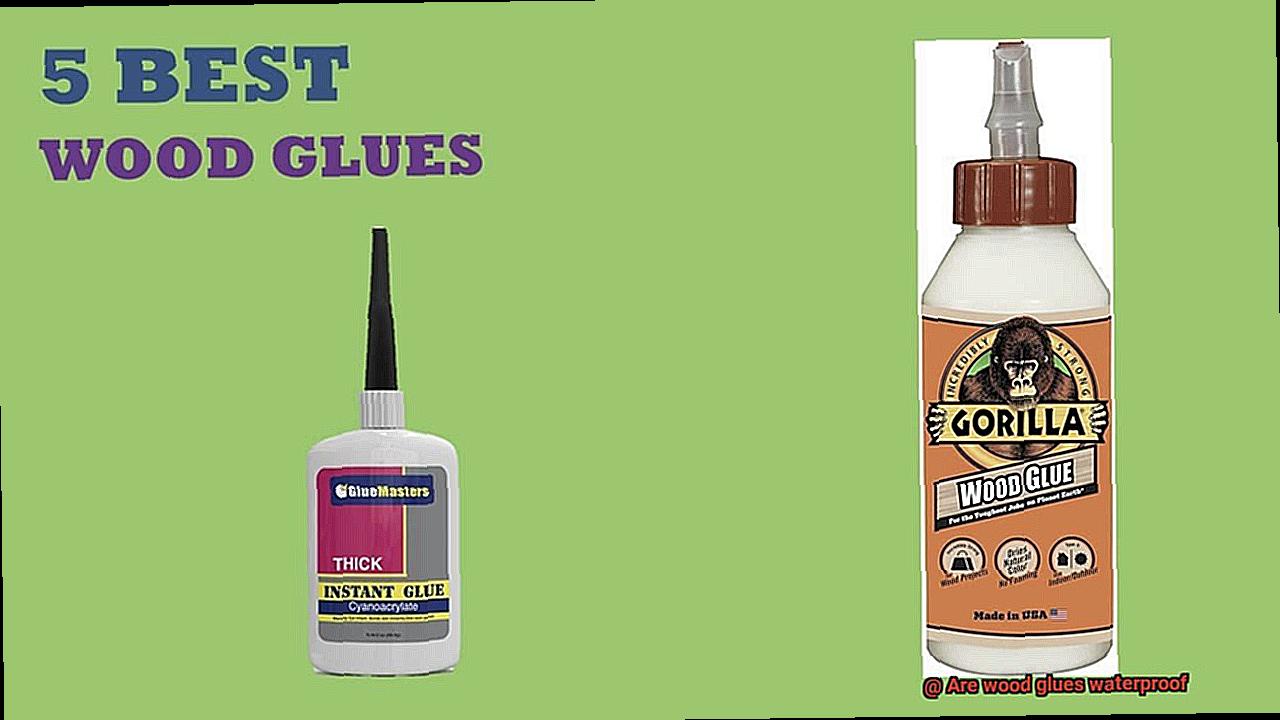
Wood glue is more than just a simple adhesive. It’s a specialized tool that’s specifically designed to bond pieces of wood together, creating a strong and durable joint that can withstand significant amounts of stress and pressure. Whether you’re a carpenter or a woodworking enthusiast, wood glue is an essential tool in your arsenal.
There are various types of wood glue available on the market, each with its unique properties and benefits. One of the most common types of wood glue is PVA-based wood glue, also known as “white glue” or “yellow glue.” This type of glue dries clear, making it ideal for use in projects where aesthetics matter. However, it’s not waterproof, and exposure to moisture can affect its bonding capabilities.
If your project will be exposed to water or moisture, you’ll want to use waterproof wood glue such as epoxy glue. Epoxy creates a strong bond that can withstand exposure to water and weather conditions. Additionally, it’s important to note that while some types of wood glue are water-resistant, they are not completely waterproof and may eventually break down if exposed to prolonged periods of water immersion.
The primary ingredient in wood glue is a synthetic resin derived from either polyvinyl acetate (PVA) or urea-formaldehyde (UF). Other additives like fillers, thickeners, and preservatives are also included to improve the adhesive’s performance and durability. These additives ensure that the adhesive can withstand different environmental conditions.
When using wood glue, it’s important to ensure that the surfaces being bonded are clean and free from any dirt or debris. This will help the glue adhere properly and create a strong bond. It is also essential to clamp the pieces together until the glue has fully dried, which can take several hours depending on the type of glue used.
Types of Wood Glues
Woodworking is a craft that requires a lot of precision and attention to detail. One of the most crucial aspects of woodworking is choosing the right type of glue to bond pieces of wood together. There are several types of wood glues available, each with its unique properties and uses. Here are five sub-sections that explain the different types of wood glues and their specific benefits.
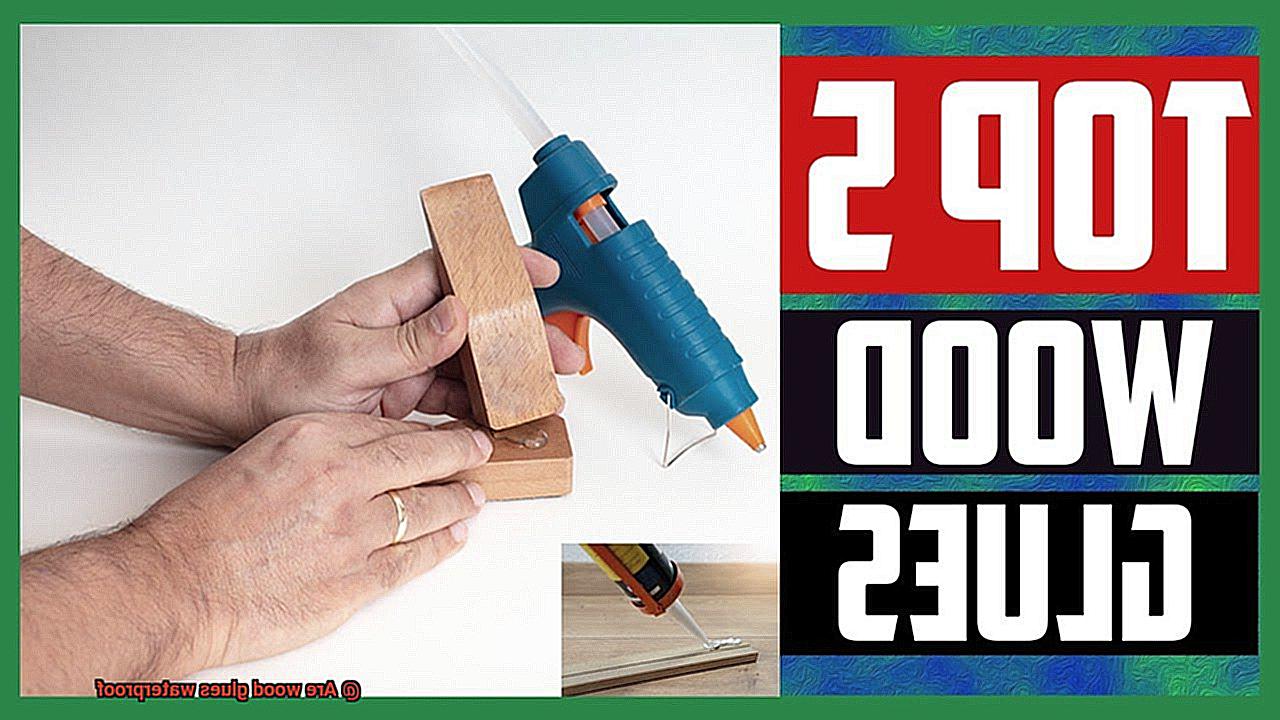
PVA Glue
PVA glue, or Polyvinyl Acetate Glue, is a popular water-based adhesive that dries clear and is easy to clean up with water. It’s ideal for indoor woodworking projects that don’t require water-resistant properties. PVA glue has good bonding strength and can hold up well in damp environments, making it suitable for most woodworking projects. However, it’s not waterproof and can dissolve when exposed to water.
Epoxy Glue
Epoxy glue consists of two parts – the resin and the hardener – which are mixed together to create a strong bond. It’s waterproof and heat-resistant, making it perfect for outdoor woodworking projects that require water-resistant properties. Epoxy glue is also known for its great bonding strength and can withstand a lot of stress and strain.
Polyurethane Glue
Polyurethane glue, also known as Gorilla Glue, is a one-part adhesive that expands as it dries to fill gaps in the wood, creating a strong bond. It’s waterproof and can be used for both indoor and outdoor projects. Polyurethane glue is highly versatile, making it an excellent option for bonding different types of wood together.
Hide Glue
Hide glue is a natural adhesive made from animal collagen that has been used for centuries in woodworking. It’s reversible with heat and moisture, making it easy to repair if needed. While it may not be completely waterproof, it does have some water-resistant properties. Hide glue is ideal for antique restoration projects or traditional woodworking.
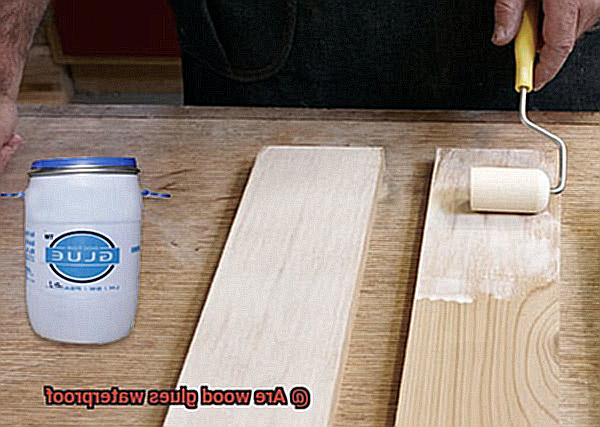
Cyanoacrylate Glue
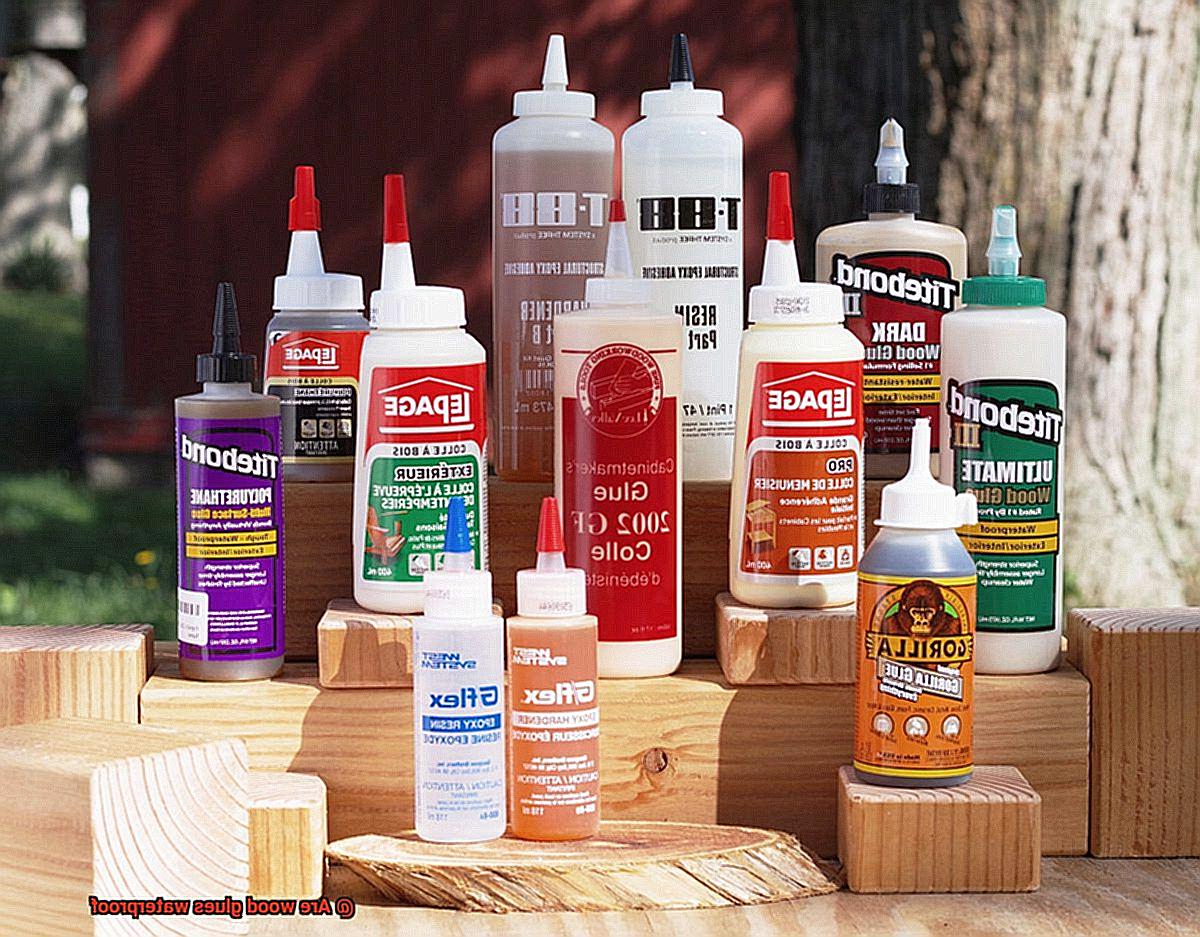
Cyanoacrylate glue, also known as superglue, is a fast-drying adhesive that can bond almost anything together. However, it’s not recommended for woodworking projects that will be exposed to water as it doesn’t have any water-resistant properties. This type of glue is excellent for small and delicate projects that require a quick and strong bond.
Are PVA Glues Waterproof?
The answer isn’t black and white, and it all depends on the type of PVA glue you’re using and the conditions it will face.
Regular PVA glue is an excellent choice for indoor woodworking projects. It dries clear, and its strong bond works wonders between porous materials such as wood, paper, and cloth. However, it’s not completely waterproof, and prolonged exposure to water can cause it to lose its adhesive properties.
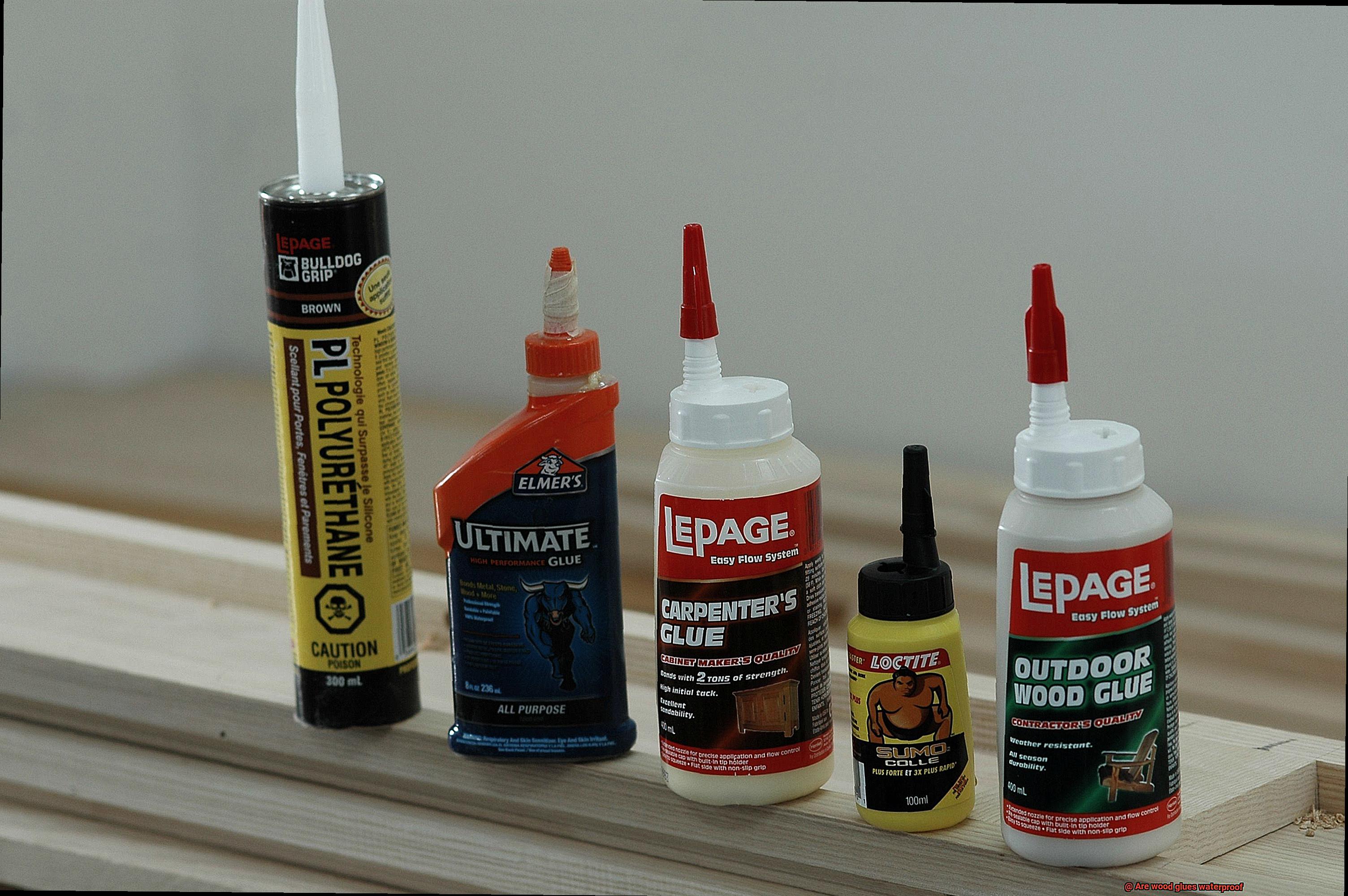
Luckily, specialized PVA formulas are available that have added water-resistant properties. These weatherproof or water-resistant PVA glues can withstand some water exposure, making them perfect for outdoor woodworking projects.
It’s important to note that even with water-resistant PVA glue, you should always take steps to protect your finished woodworking projects from excessive exposure to water. Applying a protective finish such as varnish or polyurethane can help prevent water damage and extend the life of your project.
Here’s what you need to know about PVA glue and its waterproofing capabilities:
- Regular PVA glue has some water-resistant properties but is not entirely waterproof.
- Water-resistant or weatherproof PVA glues are suitable for outdoor projects exposed to moisture or damp conditions.
- Always protect your finished woodworking projects from excessive exposure to water by adding a protective finish.
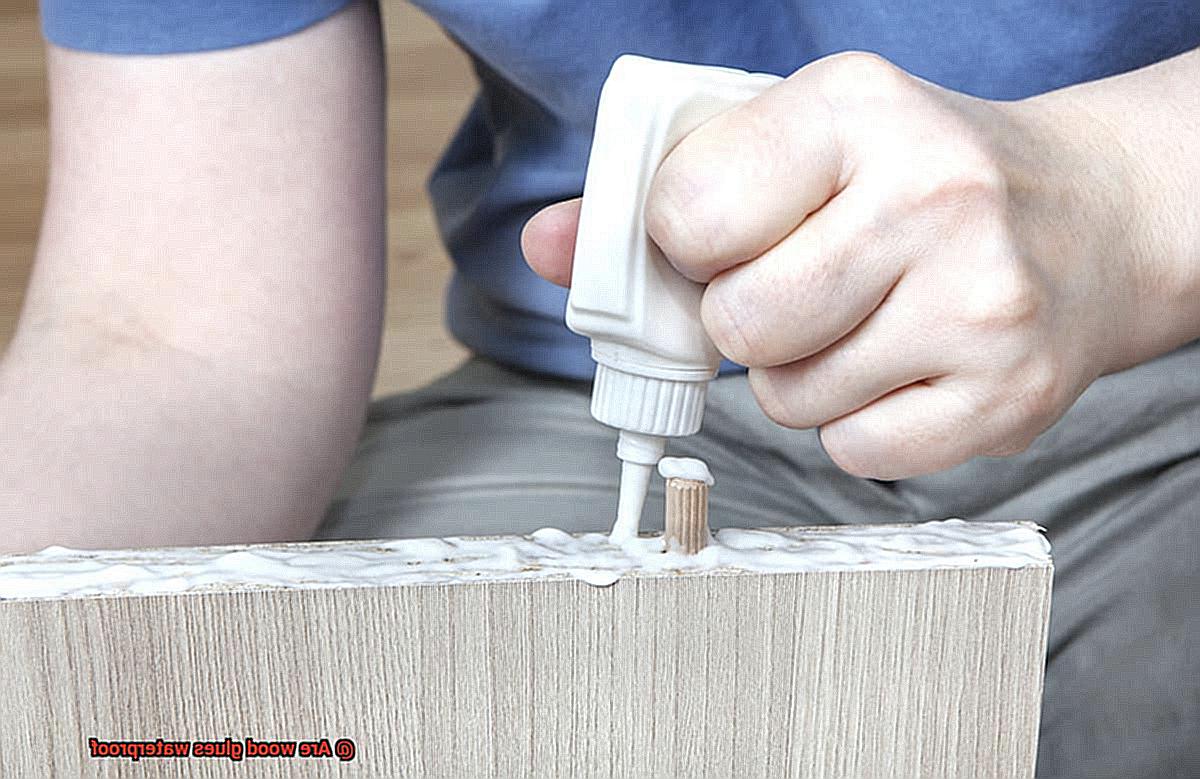
Are Epoxy Glues Waterproof?
When it comes to woodworking projects that will be exposed to moisture or water, epoxy glues can be a game-changer.
Epoxy glues are a two-part adhesive consisting of a resin and a hardener. Once mixed, they create an incredibly strong bond that is resistant to water, heat, and chemicals. However, it’s important to note that not all epoxy glues are created equal when it comes to waterproofing.
Some epoxy glues are specifically formulated for wet environments, providing maximum bonding strength and resistance to water damage. On the other hand, other epoxy products may not be as effective in preventing water damage. So, if you want to use epoxy glue for a woodworking project that will be exposed to water or moisture, it’s essential to choose the right product.
Here are some key factors to consider when using epoxy glue for your next woodworking project:
- Look for a waterproof or water-resistant product: When purchasing an epoxy glue, make sure it is labeled as waterproof or water-resistant. These products are explicitly designed to provide maximum bonding strength and resistance to water damage.
- Prepare surfaces carefully: Before applying the adhesive, ensure that the surfaces you want to bond are clean and dry. Any moisture or debris can compromise the effectiveness of the adhesive.
- Follow instructions closely: Epoxy glues come with specific instructions regarding mixing ratios, curing times, and application methods. To ensure maximum effectiveness, make sure you follow these instructions carefully.
- Add protective finishes: Even though epoxy glues are highly resistant to water damage, adding a protective finish can further prevent any potential damage from exposure to moisture.
Factors Affecting the Waterproofness of Wood Glue
As an expert in this field, I can tell you that there are several things to consider in order to achieve maximum water resistance.
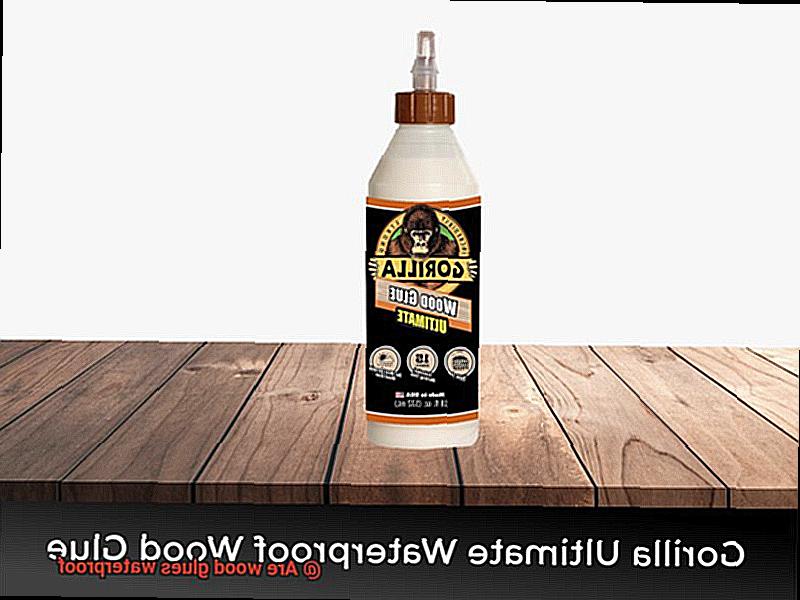
Firstly, the type of glue you use is essential. While PVA glue is commonly used for its water resistance, it can weaken over time when exposed to prolonged water exposure. If you’re working on a project that will be frequently exposed to water, epoxy or polyurethane glues are superior options known for their exceptional waterproofness. These types of glues are often used in marine applications where water exposure is a constant threat.
Secondly, proper application techniques are crucial for achieving maximum bonding strength and water resistance. Before applying an even layer of glue, make sure the surface is clean and dry. Clamping pressure should be applied evenly to prevent any gaps in the bond line that could allow water to seep through. Without proper clamping, your project may not be able to withstand even minimal water exposure, causing it to fall apart quickly.
Lastly, environmental conditions can also affect the waterproofness of wood glue. Extreme temperature fluctuations or high humidity levels can weaken or break down wood glue bonds over time. If your project will be exposed to these conditions, consider using a more durable type of wood glue that can withstand such harsh environments.
Benefits of Using Waterproof Wood Glue
Waterproof wood glue is a game-changer in the world of woodworking. Not only does it provide a strong and durable bond, but it also offers several other benefits that make it a worthwhile investment for any project.
One of the most significant benefits of using waterproof wood glue is its ability to withstand exposure to moisture and humidity. This is particularly useful for outdoor furniture, decks, and other outdoor structures that are frequently exposed to rain, snow, and other types of weather. With waterproof wood glue, you can rest easy knowing that your projects won’t fall apart due to water damage.
Another benefit of using waterproof wood glue is that it prevents the wood from swelling or warping due to moisture absorption. This can be especially important when working with porous or soft woods that are more prone to water damage. The glue creates a barrier that prevents water from penetrating the wood fibers, thereby minimizing the risk of damage caused by swelling or warping.
Moreover, waterproof wood glue is resistant to fungal growth and rot. The chemicals in the glue inhibit the growth of microorganisms that can cause decay in wood. As a result, structures and furniture made with waterproof wood glue can last longer and require less maintenance over time.
But the benefits don’t stop there. Waterproof wood glue is versatile and can be used for a variety of applications beyond outdoor use. Its resistance to moisture and humidity makes it an ideal choice for indoor projects such as kitchen cabinets, bathroom fixtures, and flooring. Whether you’re building an outdoor chair or installing a new kitchen cabinet, waterproof wood glue has got you covered.
How to Choose the Right Waterproof Glue for Your Project
When it comes to woodworking projects, choosing the right glue is crucial for ensuring a strong and lasting bond. However, if your project will be exposed to water or moisture, you’ll need a waterproof glue that can withstand those conditions without breaking down or losing its bond strength. Here are five sub-sections to help you choose the right waterproof glue for your project.
Consider the Material You’re Bonding
Different glues work better on different materials, so it’s crucial to choose a glue that is compatible with the material you’ll be working with. For example, some glues may work better on wood, while others may work better on metal or plastic. Be sure to read the label carefully and choose a glue that is designed for your specific material.
Think About the Environment
If your project will be exposed to water or moisture, you’ll need a waterproof glue that can withstand those conditions without breaking down. Consider where your project will be located and how it will be used. If it will be outdoors, you’ll need a glue that can withstand exposure to rain, snow, and other weather conditions.
Choose the Right Type of Waterproof Glue
There are several types of waterproof glues available on the market, each with their own unique properties. Epoxy glue is known for its strong bond and ability to resist water, while polyurethane glue is known for its flexibility and ability to bond a variety of materials. Marine-grade epoxy or polyurethane glue may be the best choice for outdoor furniture or boat building projects that will be exposed to moisture and saltwater.
Read the Label Carefully
Before using any waterproof glue, be sure to read the label carefully and follow the manufacturer’s instructions. This may include preparing the surface properly, applying the glue in the correct amount and manner, and allowing sufficient drying time before exposing the bond to water or moisture.
Test Before Use
Testing your chosen waterproof glue before using it on your project is always recommended. This can help ensure that the glue will work as expected and that it will bond strongly with your chosen materials. It’s better to test your glue on a sample or scrap piece of material before using it on your actual project.
y0neUZjFyss” >
Also Read: Is Elmer’s Glue Waterproof?
Conclusion
In summary, determining whether wood glues are waterproof is not a straightforward answer. It depends on various factors such as the type of glue used, environmental conditions, and proper application techniques. Indoor projects can benefit from PVA-based wood glue, but it may not be suitable for outdoor use due to its lack of waterproofing properties.
In contrast, epoxy and polyurethane glues are excellent options for outdoor projects exposed to moisture or damp conditions because of their exceptional waterproofing capabilities.
When selecting a waterproof glue for your project, it’s crucial to consider the material you’re bonding, the environment it will face, and the type of glue that best suits your needs. Always read the label carefully and follow the manufacturer’s instructions to ensure maximum effectiveness.
Aside from water resistance benefits, using waterproof wood glue can prevent swelling or warping due to moisture absorption and inhibit fungal growth and rot.

